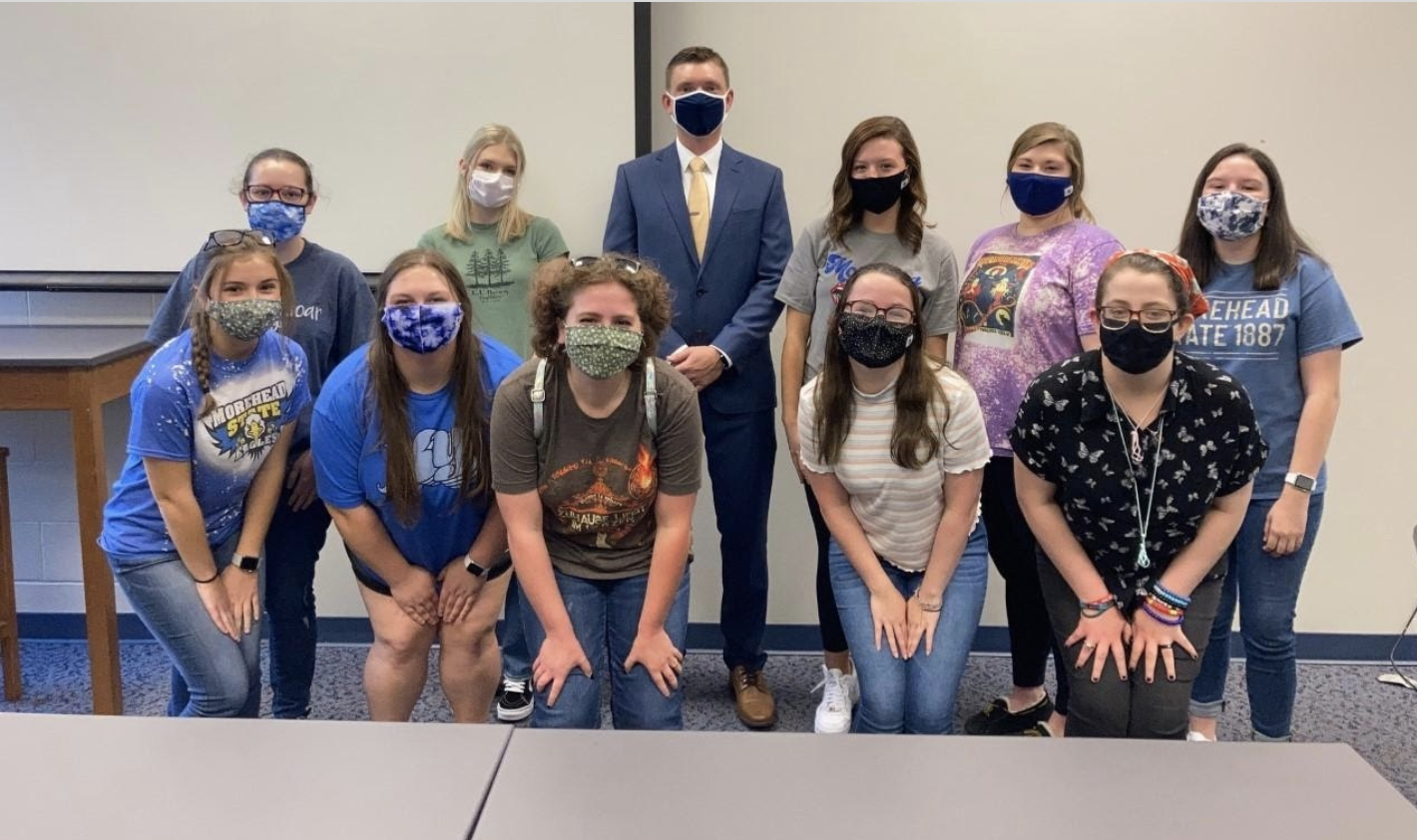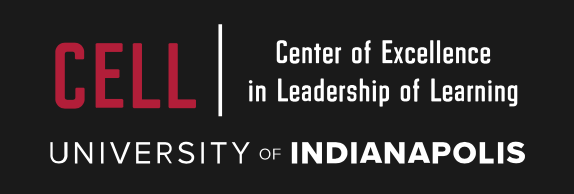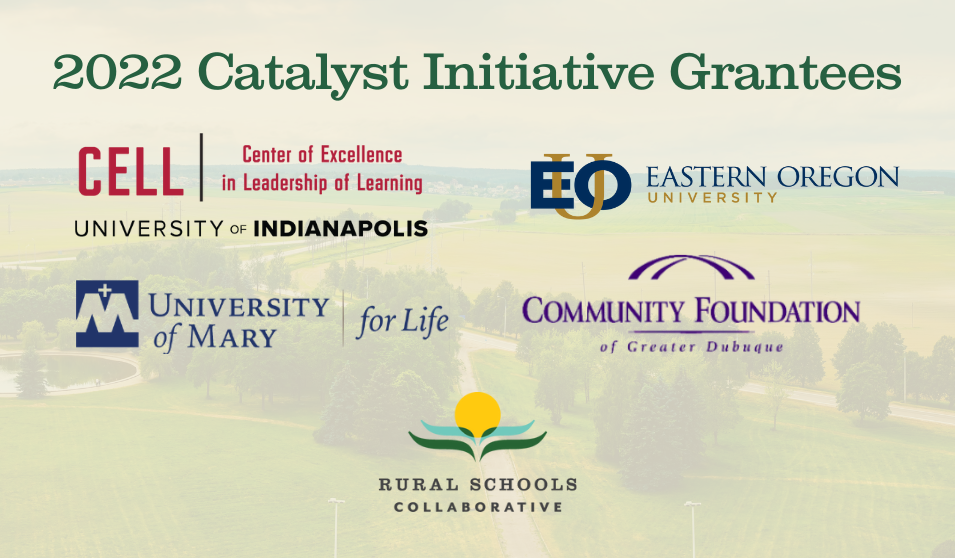Training dedicated and visionary rural educators remains a national imperative, and investing more resources to rural teacher pathways is critical to addressing the teacher shortage. Since 2015, Rural Schools Collaborative and partners have worked to ignite and sustain regional teacher preparation efforts called Rural Teacher Corps. These programs intentionally recruit, prepare, and place rural-ready and community-driven teachers.
The 2021 Catalyst Grant Initiative supported the creation of four new Rural Teacher Corps programs in RSC's Regional Hub Network through $25,000 planning grants. These new programs officially took flight in December 2021 with an impressive show of curricular and programmatic innovation.

Building on the success of the first cohort, Rural Schools Collaborative is excited to announce an extension of the Catalyst Grant Initiative that will bring flexible, early planning dollars to eight new Rural Teacher Corps programs over the next two years. Like the 2021 Catalyst Initiative, the 2022 Catalyst Initiative will use a cohort-based approach in order to facilitate collaboration during the planning, development, and launch phases of the new Teacher Corps efforts. Building sustainable systems for rural schools and communities is central to RSC’s mission, so these programs will focus on:
Sustaining a growing and vibrant teacher workforce by supporting historically underrepresented students and teachers,
Sustaining the health and vitality of rural communities through teacher-leadership, and
Sustaining program longevity through regional and national collaboration.
We’re proud to introduce the 2022 Catalyst Grant Initiative cohort, who will each receiving $25,000 planning grants:
Eastern Oregon University (Pacific Northwest Hub)

EOU seeks to bolster their growing Teach Rural Oregon program, a multifaceted project focusing on recruiting, training, and supporting educators in Oregon’s rural and isolated districts, and run in partnership with the local Wallowa Region 18 ESD. In particular, EOU will grow their Junior Field Experience, develop a rural stipend program, develop a provisional license program for remote districts.
University of Mary (North Dakota Hub)

UMary recently created an online Para-to-Teacher Pipeline program in collaboration with a network of rural superintendents and education advocates that enables aspiring teachers to earn licensing while remaining in their home communities. The Catalyst funding will go to attract further supporters for the program, as well as to strengthen the program’s recruitment, supervision, and content.
Community Foundation of Greater Dubuque (Iowa Hub)

CFGD sports a proven track record for transformative rural community development centered around local collaboration and visioning. Local schools are frequently key to those conversations, and the Foundation strives to enhance the impact of schools in their service region with a Rural Teacher Corps. Through the Catalyst Initiative, CFGD is working to create rural teacher scholarships, host professional development opportunities, and build a regional education network.
University of Indianapolis (Indiana & Great Lakes Hub)

The UIndy Center for Excellence in Leadership of Learning (CELL) has over 20 years of experience inspiring innovative school administrators, and recently launched a dedicated effort to support early college pathways, STEM programming, and Grow Your Own efforts in rural areas. Their Catalyst project will pull together these three ongoing projects into a unified pathway while introducing a teacher preparation component.
As the newest four members of RSC’s growing national Rural Teacher Corps learning community, these organizations' insights and innovations over the next year will not only propel the growth of their own programs, but also capture lessons learned to inform and inspire future Rural Teacher Corps programs around the country.
Congratulations to these four new Catalyst partners; we look forward to addressing the rural teacher shortage and bolster rural communities together.
The Catalyst Initiative Planning Grant program is made possible through the support of a generous anonymous donor. We extend a sincere thank you to our philanthropic partners for continuing to fuel robust and resilient rural communities. If you'd like to learn more about Rural Teacher Corps, please get in touch!




